SQL Server 2012
I have 3 columns in my table that will be using a function. '[usr].[Udf_OverPunch]'. and substring.
Here is my code:
[usr].[Udf_OverPunch](SUBSTRING(col001, 184, 11)) as REPORTED_GAP_DISCOUNT_PREVIOUS_AMOUNT
This function works appropriately for what I need it to do. It is basically converting symbols or letters to a designated number based on a data dictionary.
The problem I am having is that there are leading zeros. I just asked a questions about leading zeroes but it won't allow me to do it with the function columns because of the symbols cannot be converted to int.
This is what I am using to get rid of leading zeros (but leave one zero) in my code for the other columns:
cast(cast(SUBSTRING(col001, 217, 6) as int) as varchar(25)) as PREVIOUS_REPORTING_PERIOD
This works well at turning a value of '000000' to just one '0' or a value of '000060' to '60' but will not work with the function because of the symbol or letter (when trying to convert to int).
As I mentioned, I have 3 columns which produce values that look something like this when the function is not being used:
'0000019753{'
'0000019748G'
'0000019763H'
My goal here is to use the function while also removing the leading zeros (unless they are all zeros then keep one zero).
This is what I attempted that isn't working because the value contains a character that isn't an integer:
[usr].[Udf_OverPunch]cast(cast(SUBSTRING(col001, 184, 6) as int) as varchar(25)) as REPORTED_GAP_DISCOUNT_PREVIOUS_AMOUNT,
Please let me know if you have any ideas or need more information. :)
